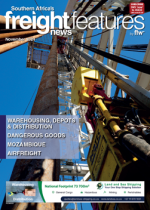More businesses are adopting international standards such as ISO 14001, ISO 45001 and ISO 9001 to improve safety and efficiency while remaining competitive in an environmentally conscious market. According to Yashen Naidoo, a senior auditor at JC Auditors, this shift towards greener practices is particularly evident in the warehousing sector, where companies aim to minimise waste, reduce carbon footprints and enhance operational safety. “With increasing demand from global supply chains for sustainable and compliant operations, more organisations will likely seek certifications to meet both local and international expectations. This trend will only accelerate in the f uture.”Naidoo notes that frequent non-conformances in warehouses often relate to safety protocols, stock control systems and environmental management. “One prevalent issue is the lack of proper risk assessments and safety procedures, particularly concerning the movement of heavy vehicles and loading practices. Another recurring problem is non-compliance with fire safety regulations as stipulated under the Occupational Health and Safety Act (OHSA) 85 of 1993, which includes insufficient emergency exit routes, fire equipment maintenance, and training for staff,” he told Freight News. “Many warehouses also struggle with maintaining accurate inventory control systems, leading to inconsistencies between stock records and actual physical stock, potentially resulting in significant delays in freight distribution and impacting service reliability.”To maintain compliance, Naidoo emphasises the importance of developing and implementing robust management systems. “One best practice is ensuring the warehouse operates under a certified ISO 9001 Quality Management System, covering inventory control, health and safety protocols, and risk assessments. Regular staff training is essential to keep everyone informed about safety protocols, particularly for forklift operations and hazardous material handling. Auditing fire safety systems and conducting emergency preparedness drills in accordance with OHSA 85 of 1993 is another critical area often overlooked,” he explained. “Additionally, implementing a strong maintenance programme for equipment like forklifts, racking, and lifting gear ensures all equipment remains in good working condition, preventing accidents and downtime.”Naidoo stresses that regular audits and training are vital for identifying potential risks early and applying effective mitigation measures. “Compliance is an ongoing process, not a one-time event,” he says. “Standards play a crucial role in establishing a framework that ensures warehouses, depots and distribution centres operate efficiently and safely. They help manage operational risks and provide clear processes for continuous improvement, ensuring alignment with legislative requirements, including health and safety regulations. In the logistics sector, this alignment helps organisations build trust with clients and regulatory bodies. The freight industry relies heavily on standards to drive consistency, safety and sustainability in warehousing and distribution. Adopting these standards transforms compliance into a daily practice rather than an afterthought.”The sector faces several challenges, including rising operational costs and space management within warehouses, compounded by the increasing complexity of regulations and standards. “One significant challenge is the rapid evolution of technological requirements, such as integrating smart logistics systems to track stock and vehicles. Many warehouses struggle to keep up with these advancements due to the high implementation costs and the need for technical skills,” says Naidoo. Lv

